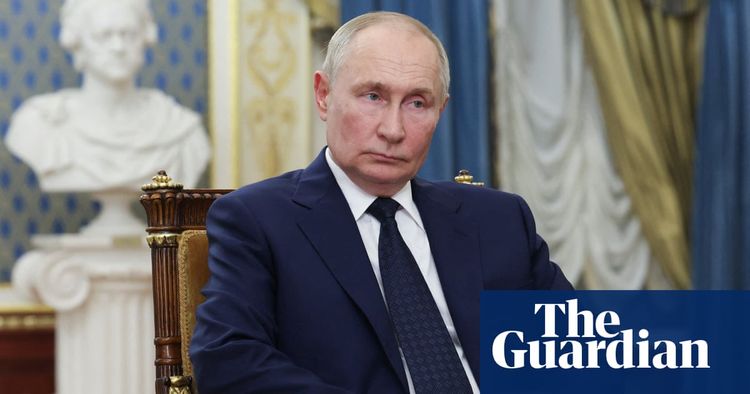‘Usually just rhetoric’: European policy leaders downplay Putin’s war threats

European leaders have rejected Vladimir Putin's claim that the West would be engaging in direct conflict with Russia if Ukraine were to use Western-made long-range missiles to attack Russian territory.
The United States and the United Kingdom, along with other allied nations, are in talks about permitting Kyiv to use Storm Shadow missiles to attack military positions within Russia. These missiles have a range of up to 155 miles (250 kilometers) from where they are launched.
On Thursday, the Russian president warned that if Western countries allow Kyiv to use longer-range weapons to strike targets within Russia, it would effectively mean that NATO is at war with Moscow.
Putin stated that this would fundamentally alter the nature of the conflict, noting that Russia would respond with "suitable actions depending on the threats we encounter."
The Kremlin's decision-making process is still not well understood as Russia, a nuclear-armed nation, continues its military involvement in Ukraine. At the same time, it is working closely with nations like Iran, which Western governments have claimed is supplying Moscow with ballistic missiles.
However, European leaders have dismissed the importance of the threats made by the Russian leader.
Polish Prime Minister Donald Tusk emphasized the importance of closely monitoring all developments in Ukraine and along the Ukrainian-Russian border. However, he advised against reading too much into recent remarks made by President Putin. Tusk suggested that these statements reflect the challenging circumstances that Russia is facing on the front lines.
The British Prime Minister, Keir Starmer, addressed Putin's threats by stating to the press, "Russia initiated this conflict. They unlawfully invaded Ukraine. The resolution lies in Russia’s hands; they can cease this conflict immediately. Ukraine has the right to defend itself."
Starmer, who is scheduled to meet US President Joe Biden in Washington this Friday, stated that the UK has offered “training and resources” to assist Ukraine in defending itself against the Russian invasion. He mentioned that his visit to Biden is partly to engage in further conversations regarding the specifics of that support.
On Friday, Dmitry Peskov, the spokesperson for the Kremlin, stated that there was no question the Russian president’s message got through to its intended recipients.
However, within NATO policy discussions, there was a belief that Putin's statements should not be interpreted literally.
Peter Bátor, an expert on defense policy and former Slovak ambassador to NATO, commented, "In my view, the Russian government, particularly the president, often resorts to this tactic when he’s unsure how to react—it's mostly just empty talk."
The former ambassador stated that one important takeaway from Russia's aggression towards Ukraine is that we must disregard Putin's words, as he has consistently been untruthful.
An experienced diplomat from Eastern Europe, requesting to remain unnamed, expressed that there should be no limits on the use of weapons. “International law permits a nation to protect its sovereignty and territorial integrity from another's aggression in any way it chooses,” the diplomat stated. “The key issue is that the military assistance provided to Ukraine is subject to restrictions.”
According to the source, there has been an increase in Russian assaults on civilian facilities in Ukraine, a rise in hybrid tactics aimed at allied nations, and a greater number of drones and missiles crossing into NATO airspace along the eastern border, particularly in Latvia, Poland, and Romania.
The diplomat noted, “Putin has issued threats to the West in the past, and he will likely keep doing so as long as these threats are effective.”



























































